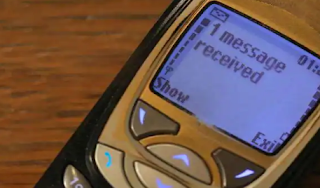Mobile Text Messages History: Text messages play an important role in today's hectic life and every day millions of people send text messages through many mediums. According to new statistics, one out of three text messages sent today is sent and received through SMS (Short Message Service). But do you know when the world's first text message was sent and who used it for the first time?
Mobile Text Messages: First Text Sms Was Sent Before 30 Years
New research has found that despite many modern messaging options, text messages (SMS) are still popular today and are used by millions of people every day.
Neil Papworth, the Vodafone engineer who sent the message, said about the text message 'When SMS was first transmitted in 1992, it was not known that texting would become so popular and millions of people would use it every day.
The first SMS was sent 30 years ago
First Text Sms Was Sent Before 30 Years. According to a report by the Independent, the first text message was sent on December 3, 1992, and said Merry Christmas. The world's first text message was 'Merry Christmas' and this short message of 15 characters was sent through the Vodafone network.
Who sent the first text message?
The world's first text message (Text Message) was sent by Vodafone engineer Neil Papworth from a computer to another colleague Richard Jarvis, who was a director of the company. Richard sent this SMS to the Orbital 901 handset.
SMS is still very popular today
A communications firm Infobip revealed that 30 percent of respondents said they send messages daily and 54 percent said they use SMS to send messages. Infobip UK country manager Nikhil Soorji said messaging technology has evolved rapidly over the past 30 years and people are now using everything from WhatsApp to Skype. Some people argue that SMS has lost ground in the race for the popularity of messaging platforms, but our findings are quite the opposite.




No comments:
Post a Comment